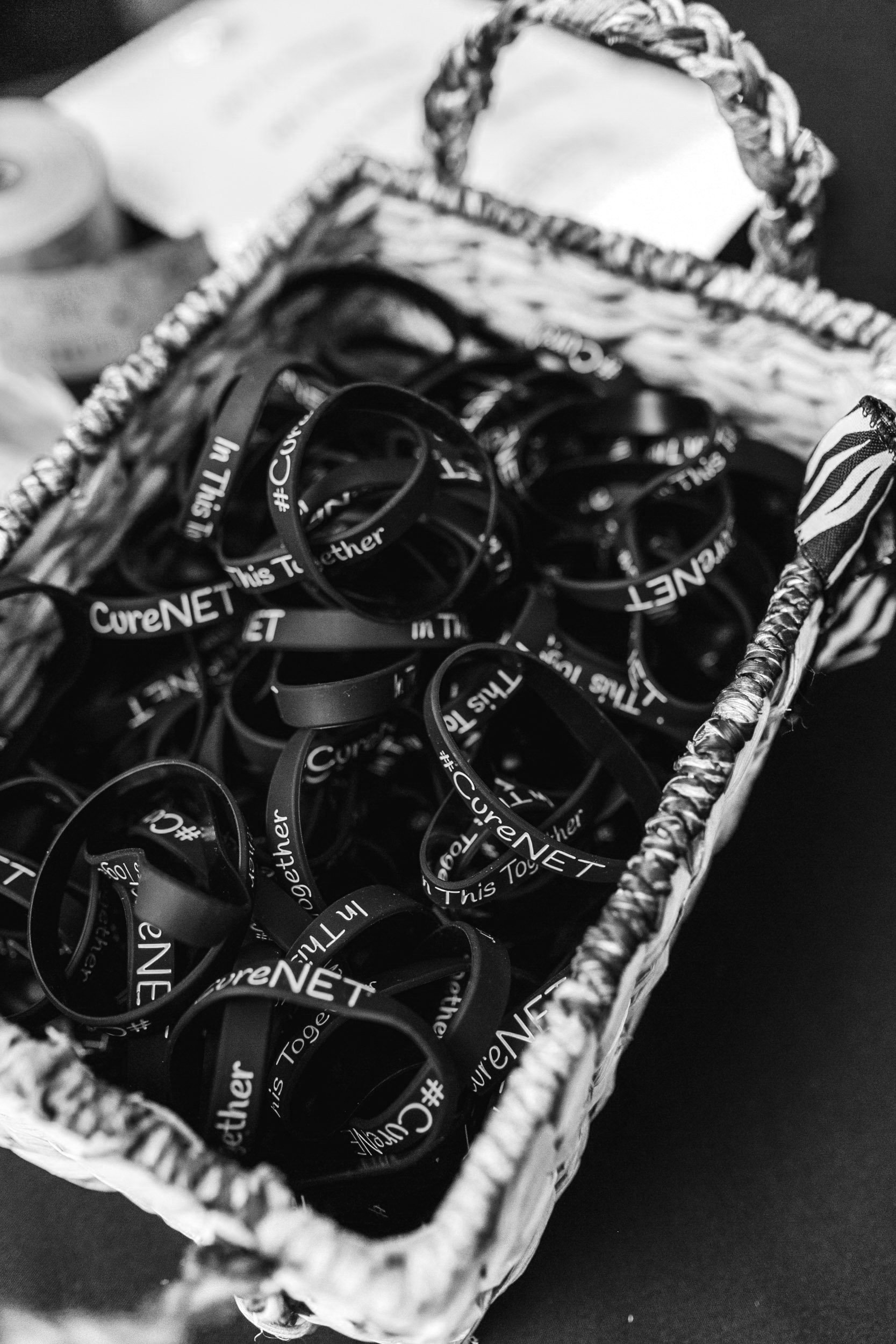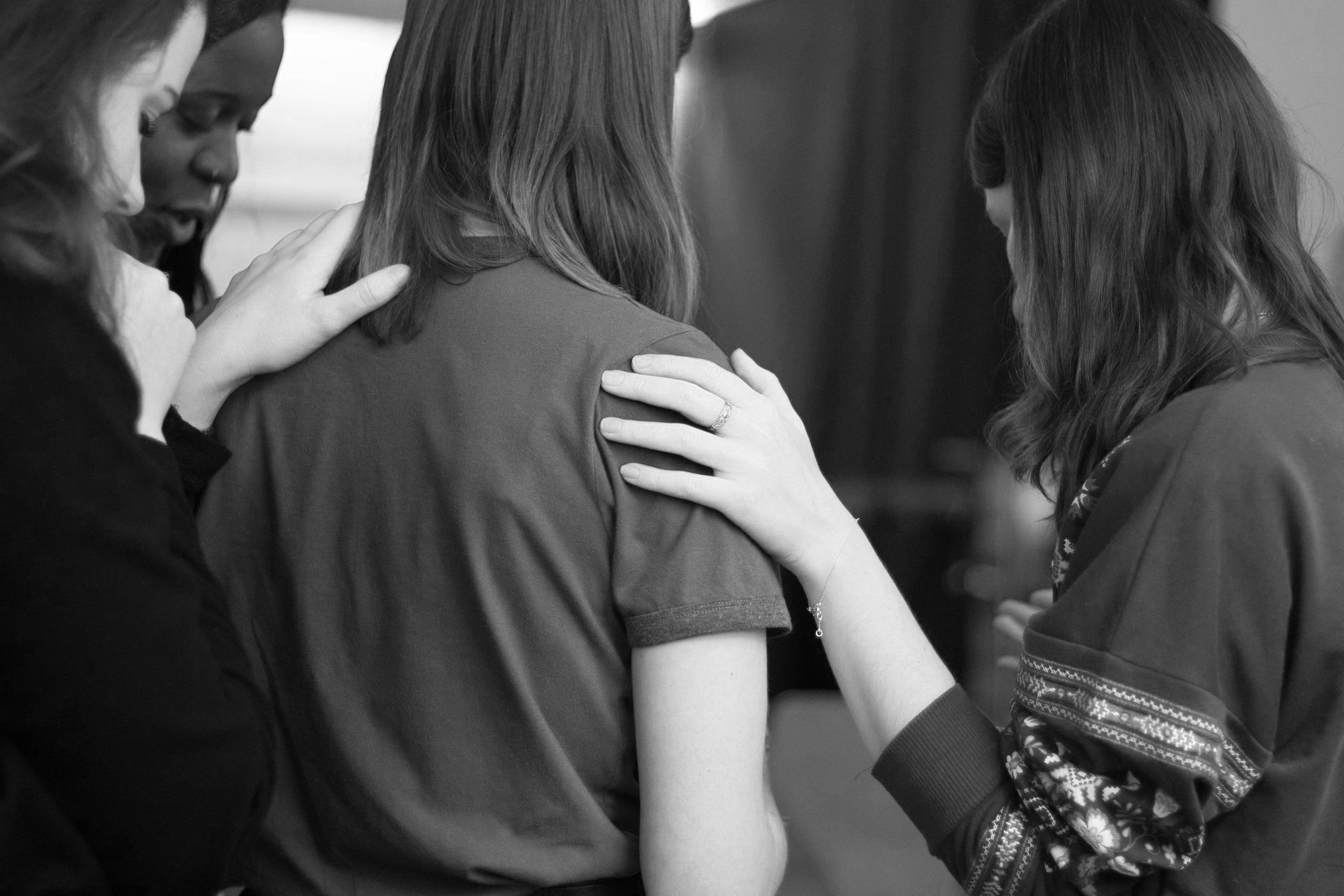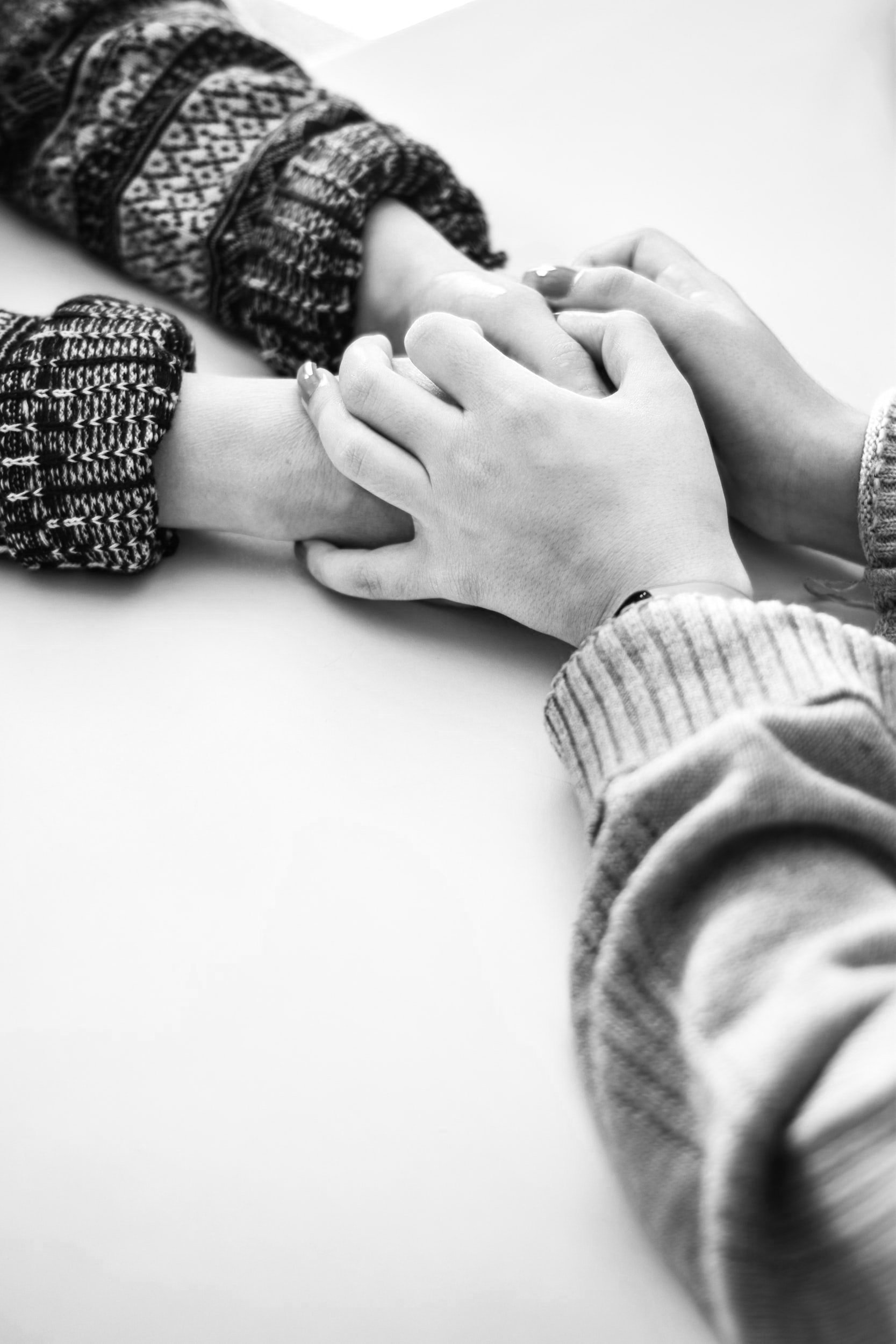
My name is Brittany Holzhauer, and my family founded The CureNET Project in an effort to support not just me, but everyone fighting the same battle I am.
I am the oldest of four children, each of us unique in our own right. While I have always been the “introverted” one, I am also the dreamer – always overachieving and working tirelessly for what I set my mind to. At a young age I decided I wanted to build a big beautiful house, make jewelry and be a Mom. By the time I was 11, I decided I wanted to be a doctor, but my main goal in life was still to become a Mom. I knew that when I got older, I wanted to build the same close knit family that I grew up in – I wanted to offer that same experience to my children. A lot of the decisions I made growing up were based on achieving those goals as quickly as possible, and I was willing to do whatever it took to get there. I had my first job at 14 as a tutor, then shortly after I worked as a lifeguard. In addition to working, I swam and played water polo year round – these sports required me to exercise 4‐6 hours every day, and maintain a high GPA all through high school. I was a very active and involved teenager, and had a very healthy lifestyle. My senior year of high school I was accepted to my dream college, The Ohio State University – I enrolled and began classes in the fall of 2009. While I had known since I was 11 that I wanted to be a doctor, it wasn’t until my sophomore year of college that I decided I wanted to be a Doctor of Pharmacy – that same year I met my husband, Luke. Luke was very supportive of me as I worked diligently towards my dream of becoming a Doctor, and we also discussed our dreams of building a family together.
Throughout undergrad, I continued to live a healthy and active life. In 2012 while training for a half marathon, I began having abdominal pain and loss of appetite. I went to see my doctor and they ordered a CT scan – I was told everything was normal and they were not able to determine the cause of my symptoms. Eventually the pain subsided, and I competed in the race. My symptoms did not return and in May 2013, I graduated with my Bachelor of Science Degree in Pharmaceutical Sciences. In August of 2013 I began my four‐year Doctor of Pharmacy program at The University of Cincinnati, and in May of 2017 I received my Doctorate Degree and married the love of my life. In 2018 I completed my residency and began working as a clinical pharmacist at an adult medicine clinic, around that time Luke and I decided to start a family. Our daughter Lorelei was born on June 5, 2019, and we immediately fell in love with her. Everything I had been working for my entire life was finally coming together, I was living my dream!
Our Story
About a week after Lorelei was born, I developed severe abdominal pain, and after a trip to the emergency room and a CT scan, it was determined that my gallbladder needed to be removed immediately. Following surgery, my symptoms had resolved and I resumed my normal life, enjoying every minute with my young family. A few weeks later Lorelei began having difficulty breathing, and was eventually diagnosed with laryngomalacia – at 2 months old Lorelei had to have a high risk surgery, which caused me stress and fear that I had never imagined possible. Her surgery was successful, and while her breathing improved she began having difficulty feeding – she was then required to be on a feeding tube for several months. Around this time I began experiencing dizzy episodes, so I went to my primary care provider. I attributed the dizziness to all of the stress I was experiencing at the time, but my doctor couldn’t determine a cause and attributed it to being overweight, despite my healthy diet and lifestyle. My symptoms resolved for a while, but in December 2019 I had a severe stomach virus. While virus symptoms eventually improved, they never fully resolved. The symptoms began getting progressively worse, so I made some dietary changes – I removed dairy, then I removed gluten, then I tried a mostly plant based diet. No matter the changes I made to my diet, nothing made a difference in my symptoms. I was eventually referred to a gastrointestinal doctor, however it was August of 2020 before they could see me. The GI doctor had me try a course of antibiotics in case the stomach virus was still lingering, unfortunately the antibiotics did not help. Around that time, we found out that we were pregnant with our second child, which was a great blessing. During the pregnancy the gastrointestinal symptoms resolved, but the pregnancy was very painful and difficult. Our son Dean was born on April 15, 2021, and again we instantly fell in love! After bringing Dean home from the hospital, Luke and I often discussed how we were living our dream, and we could not wait to continue growing our family.
Six weeks after Dean was born, my GI symptoms returned. They got progressively worse and I also began experiencing chest pain, night sweats and flushing. I attributed those symptoms to being post‐partum and breastfeeding, but still I went to see my primary care provider because something did not feel right. I completed routine lab work that showed my liver enzymes were significantly elevated, and was once again referred to a GI doctor. On August 27, 2021 I went in to complete a liver ultrasound – within 45 minutes of completing the ultrasound I received a call asking my husband and I to come in. When we arrived the office was closed, but the doctor and his staff asked us to come back to discuss the findings – the doctor then informed us that they found several tumors on my liver.
Symptoms
In addition to the many small tumors, there was a softball sized tumor and a baseball sized tumor. They suspected the tumors originated in my pancreas, and expressed hormones which likely were the cause of my reoccurring symptoms. After imaging and a biopsy, it was confirmed that I had Stage IV Pancreatic Neuroendocrine Tumors (pNET) – a very rare form of cancer that for me originated in the pancreas. Because this cancer is so rare, there is very little known about it, and even less known about how to treat it.
Even in cases where it is detected early, and tumors are surgically removed, it almost always comes back – it is an incurable cancer. The diagnosis was overwhelming to say the least – the original prognosis even more overwhelming. I went from this life I had worked so hard for to feeling like I was losing it all in a matter of seconds. My heart broke thinking about my children and what this diagnosis would mean for them. My family and I immediately began researching the disease and the best doctors to treat me. Because of the rarity of this disease, there are very few treatments and specialists available. We learned that the disease is very slow growing, so while the symptoms were new, the tumors had likely been growing for 10 years.
My doctors and I looked back through my medical records and found that the tumors were there in 2019 when I had my gall bladder removed, and even in 2012 when I experienced abdominal pains in college. The tumors had been growing inside me for 10 years and I had no idea – while I was busy working hard for the life I dreamed of, this disease was growing inside me. We quickly found a team of doctors at The Ohio State University and I was started on CAPTEM, an oral form of chemotherapy, within 2 weeks of my diagnosis. The tumors on my liver and pancreas were too plentiful and large, therefore I was not a candidate for surgery. The goal with CAPTEM was to shrink the tumors to a point where surgery could be an option. After 5 cycles of CAPTEM, my symptoms had improved slightly but the tumors were not shrinking. We decided to stop the CAPTEM treatments and we transferred my care to one of the top NET doctors in the world, at the Mayo Clinic in Rochester, MN.
After consultation with the Mayo Clinic, it was determined I would undergo hepatic artery embolization – in Layman’s terms, they would attempt to cut off the blood supply to the larger tumors so that they would shrink and eventually die. I completed my second embolization treatment on June 9th, and we are still waiting to find out if the treatments were effective. While in Minnesota, we met with a surgeon who for the first time since my diagnosis told us that I was a candidate for surgery! The Mayo Clinic has developed a surgical plan that will remove half of my liver and remove the disease in my pancreas, hopefully adding decades to my life. The first surgery is scheduled for August 26, 2022 – one day shy of a year from my diagnosis.
The Zebra
Up until the diagnosis I had control over every outcome in my life – if I worked hard enough eventually I achieved all of my goals. I now have no control over the outcome of this disease, nor the impact it has on my family. I have struggled with not knowing if I will get to see my children grow up, and with finding ways to make sure they know how much I love them, whether I am here to tell them or not. The best way I know I can affect the outcome of this situation is to live a healthy lifestyle and find ways to help further research for NETs. Once the dust settled on my diagnosis and I knew my best chance for survival was a breakthrough in medical research, I knew I wanted to find a way to fund that research that could potentially save my life. In January 2022 I went to my siblings with the idea of raising money, and it turned out they were already working on ideas.
We wanted to create something big and lasting, something that would have an impact on more than just us. We didn’t want to settle for one fundraising event, we wanted to create something much bigger. In April 2022 we founded the 501(C)(3) non‐profit organization, The CureNET Project. The mission of The CureNET Project is to raise money to fund NET research, to raise awareness about NETs and to assist other families in the NET community who are fighting the same fight as us. Because NETs are so rare and there is so little known about them, funding research is that much more important – without funding there is no research, and without research there is no cure. While there are thousands of people around the world with NETs, not all of them have the support system that I do – we want to help those individuals.
I hope my story has given you a better idea of where The CureNET Project came from, what we want to accomplish, and the types of individuals and families that we are fighting for. We hope that you will continue to support us and our mission, as we are relentless in our pursuit to fund a cure and save not just my life, but the lives of all those affected.
CureNET

Thank You For Your Support
All donations will help to fund NET research, to raise awareness about NETs and to assist other families in the NET community who are fighting the same fight as us.




